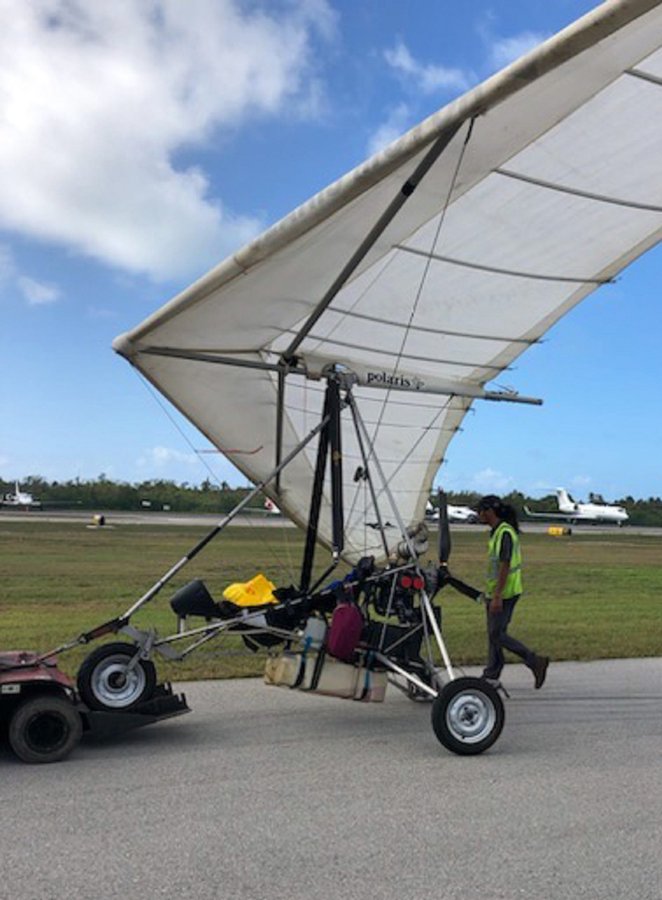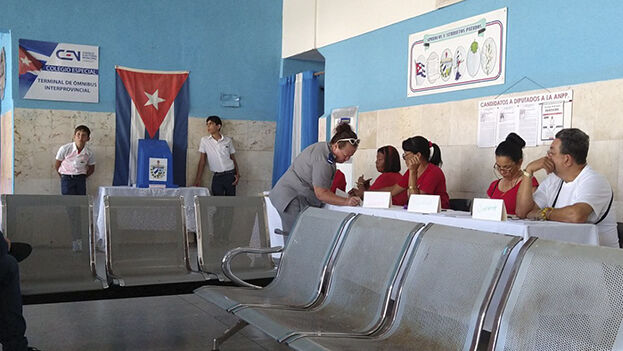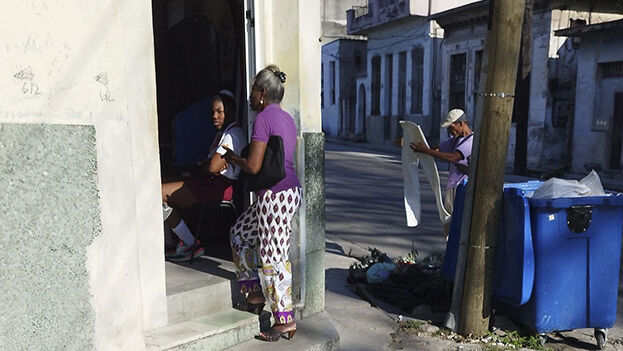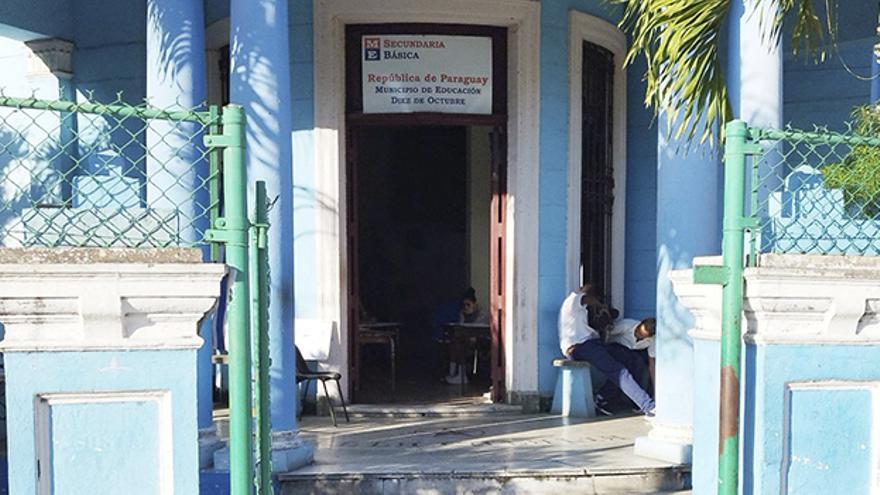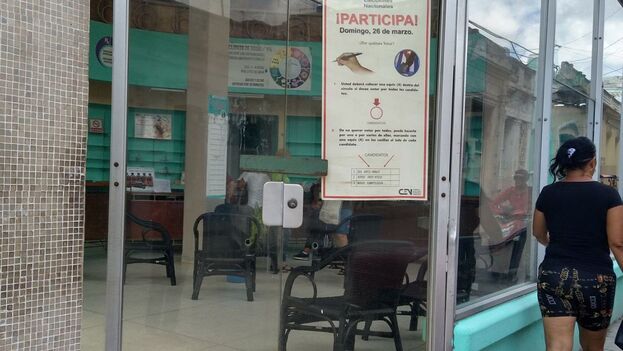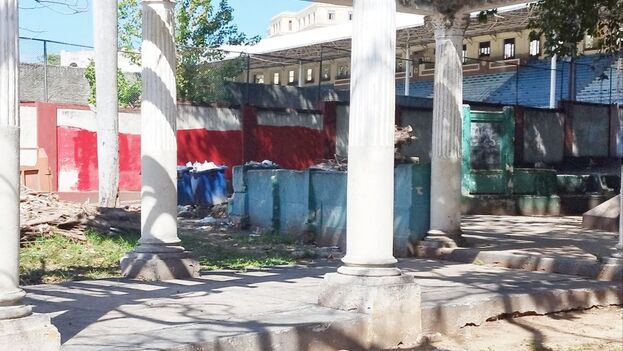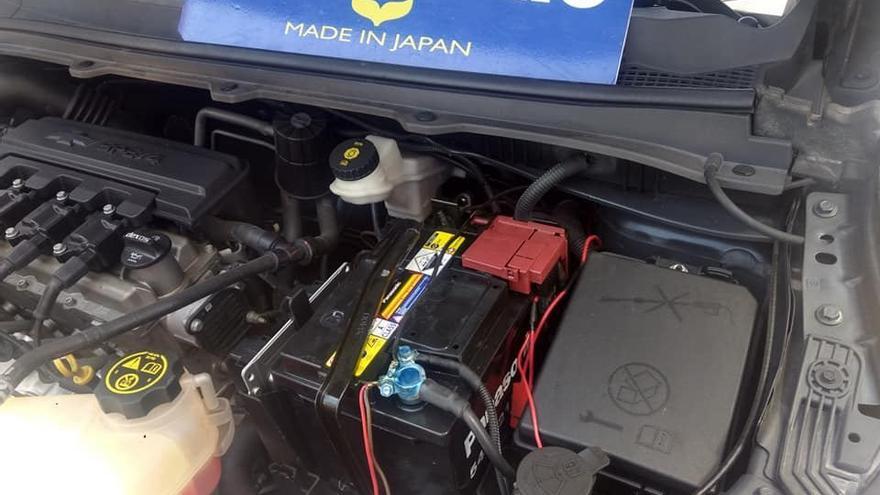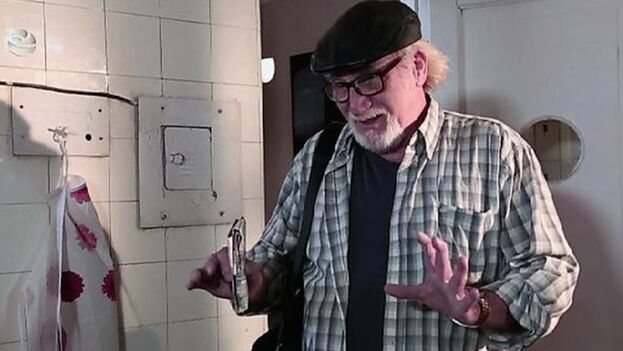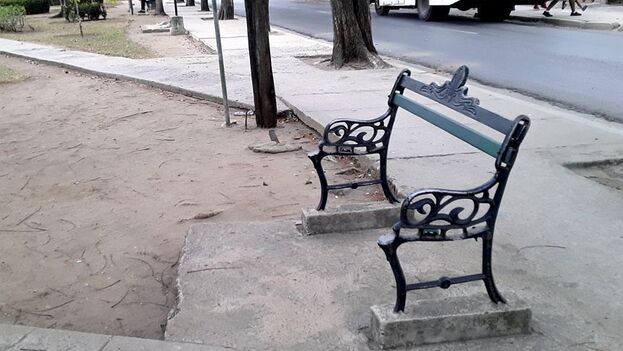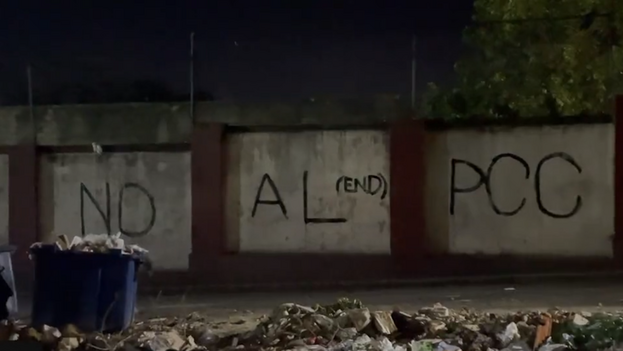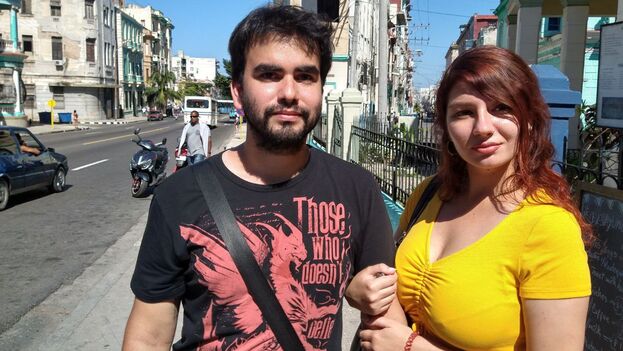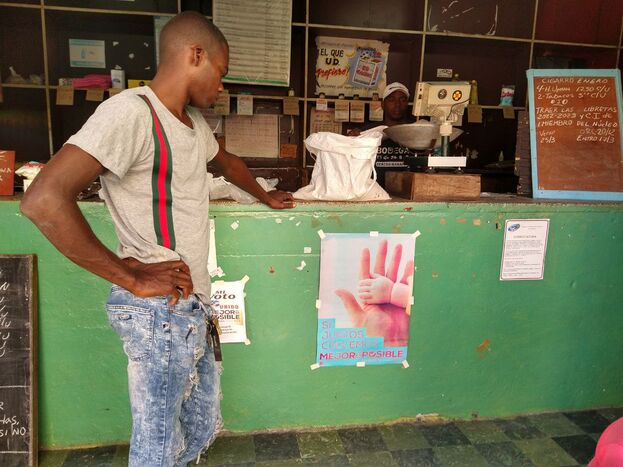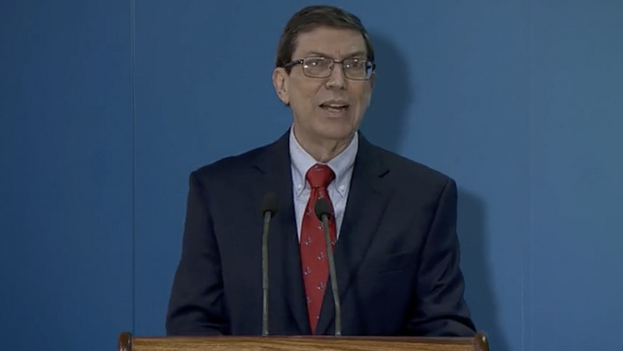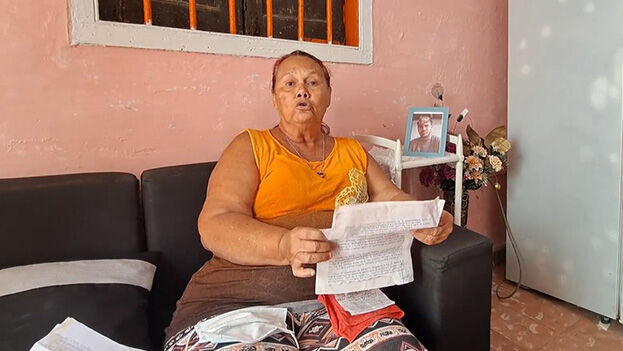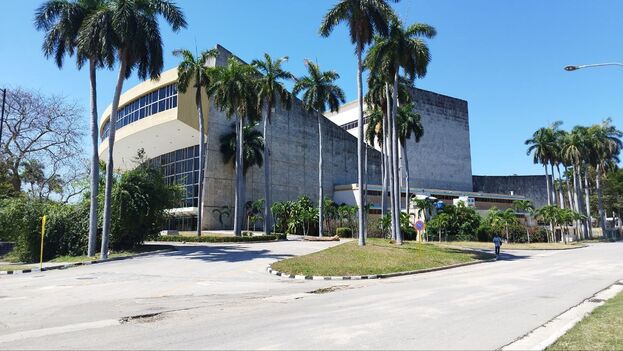
![]() 14ymedio, Juan Diego Rodriguez, Havana, March 23, 2023 — The leaks that flooded the stage of Avellaneda Hall at the National Theater in Havana, where the Cuban National Ballet performed last Sunday, created more than just an “uncomfortable moment,” as musician Osmany Hernandez noted in a social media post on Tuesday.
14ymedio, Juan Diego Rodriguez, Havana, March 23, 2023 — The leaks that flooded the stage of Avellaneda Hall at the National Theater in Havana, where the Cuban National Ballet performed last Sunday, created more than just an “uncomfortable moment,” as musician Osmany Hernandez noted in a social media post on Tuesday.
The accompanying images on Facebook illustrate the magnitude of the disaster. A thin thread of water runs across the top of a music stand and drops of water fall from its lamp as the Symphony Orchestra of the Gran Teatro de La Habana accompanies the ballet. Water can also be seen filtering through the ceiling between the spotlights.
“A piano, stringed instruments, conductor, musicians and wet electrical equipment.” Hernandez notes all are impacted by “the routine leak that appears whenever it rains.”
Witnesses told 14ymedio that even the artists were in danger, with ballerinas dancing on a wet stage near high-voltage equipment. They reported that leaking water could also be found throughout the building: “On the tables, above the musicians, in the basement and on windows. “Even the musicians and the instruments got wet.” Despite these conditions, the performance went on, uninterrupted.
In a social media post, Osmany Hernandez, a bassoonist and instructor at Havana’s Guillermo Tomás Conservatory, asks authorities to take action “to safeguard one of the few theaters we have left.”
He took the opportunity to remind readers that the Karl Marx Theater and the Grand Theater of Havana are “closed due to termites,” and that the Amadeo Roldán has been closed for years due to construction problems resulting from “a terrible repair job.” continue reading
“Our National Theater is now overrun with termites and there is growing deterioration of the facilities and musical instruments, such as harps, that are kept there,” he continues. It is a claim that is corroborated by his colleagues.
One of them is Igor Ernesto Corcuera Cáceres, director of the National Concert Band and professor at the Higher Institute of Art in Havana “And that’s in Avellaneda, which is the space in the best shape… Imagine what that says about its step-sister, the Covarrubias Hall, which is infested with bats and termites. The ONLY harp the National Symphony Orchestra still has is in serious danger of being ruined, not to mention double basses and other instruments.”
“Inconceivable indifference and deterioration,” adds René Gacives. “To the list, add the Sala Dolores in Santiago, which is now closed and in danger of collapse, and the International Choir Festival center in Santiago de Cuba.” Hernandez’s reply: “And nothing is happening.”
“The cultural budget is being cut. The complaints by our soloists, concertmasters and alternating soloists are not being taken into account under the new model, which is discouraging to those of us who choose to stay. And on top of that, we’re not allowed say anything.”
In another post, Hernandez mentions that he was ordered not to reveal anything on social media about the complaints. “And when exactly will some of these urgent problems be taken into consideration? Is it better to stay silent than to point out problems that threaten our professional existence? I don’t think everyone in a position to solve this problem knows about it. I know that those who are truly interested in culture are bending over backwards to resolve this.”
“I know that the staff of the National Theater of Cuba are dedicated and go out of their way to help,” Corcuera Cáceres concedes. “But things at this point are now more than they can handle. They don’t have the budget or resources to solve this problem. It takes investment at a higher level (so to speak).”

The flutist Alberto Rosas is even harsher in his comments: “This is the result of the incompetence, fraud, ineptitude, inefficiency and corruption of a failed system that plagues the Cuban people. This is the the sort of thing has always been condemned and denounced by conscientious citizens. I am fully aware of that. But because the theater does not have an owner, no one suffers the consequences. Its leaders wash their hands of it to safeguard the meager benefits they get compared to ordinary people for their poor performance. Cuba is falling apart. This is what they’ve done to what was once known as the Pearl of the Caribbean.”
The National Theater of Cuba opened in 1979 to coincide with the Sixth Summit of the Non-Aligned Movement. However, the authorization for its construction dates from 1951, before the Revolution. The original plan was inspired by the Radio City Music Hall in New York but that vision never came to fruition.
The musician who published the original post ended the thread by reporting, “Today they began to repair the roof. I hope it turns out well. Many of us who work there really need it.” On Wednesday, 14ymedio confirmed that some sort of repair is being carried out. At least there was a workman on the roof.
The musicians’ complaints coincide with the publication in official media outlets of a report acknowledging problems of inefficiency and corruption at state cultural organizations. Artists consulted for this article interpret the report as an attempt to do away with these organizations and allow small or mid-size private companies to take over their operations.
____________
COLLABORATE WITH OUR WORK: The 14ymedio team is committed to practicing serious journalism that reflects Cuba’s reality in all its depth. Thank you for joining us on this long journey. We invite you to continue supporting us by becoming a member of 14ymedio now. Together we can continue transforming journalism in Cuba.

